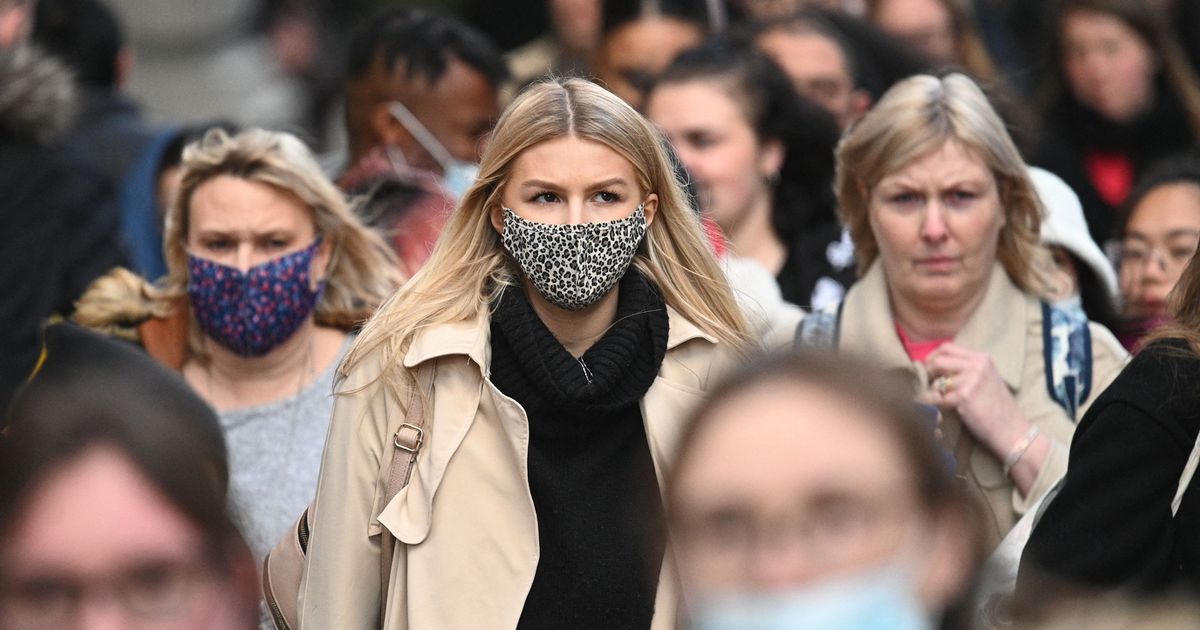Health
Ireland’s Covid Cases Decline, but Stratus Variant Symptoms Emerge

While Ireland has reported a decline in Covid-19 cases, health experts warn that the latest variant, known as Stratus (or XFG), is spreading quietly and may present symptoms that many could overlook. Last week, the country recorded 425 new infections, a decrease from 571 the previous week. Stratus is now responsible for nearly all new cases, accounting for 76.1% of infections, a significant rise from 49.3% just six weeks prior, according to the Health Protection Surveillance Centre.
Dublin reported the highest number of new cases last week, with 89, followed by Cork with 57 and Limerick with 33. In contrast, Laois and Mayo reported no new infections, while Roscommon recorded only one case. The World Health Organization has classified Stratus as a “variant under monitoring,” noting that although it does not appear to cause more severe illness, it spreads at a faster rate than earlier strains.
Understanding the Subtle Symptoms of Stratus
As Stratus circulates, doctors are identifying subtle early symptoms that may be easily missed. A notable sign is a hoarse or raspy voice, which can appear before more common Covid indicators such as fever or cough. Dr. Kaywaan Khan, a GP at Harley Street, emphasized this point, stating, “One of the most noticeable symptoms of the Stratus variant is hoarseness, which includes a scratchy or raspy voice.”
In addition to hoarseness, other symptoms linked to the Stratus variant include nasal congestion, sore throats, stomach upsets, and fatigue. Dr. Peter Chin-Hong, an infectious disease specialist at the University of California, San Francisco, highlighted that Stratus presents a broader range of symptoms compared to previous variants. He noted, “There’s a little bit more sore throats with some people, particularly in those who are older and who didn’t get vaccinated last year.”
Public Health Guidance Amidst New Findings
Despite the emergence of these new symptoms, official Covid guidance in Ireland remains unchanged. The Health Service Executive (HSE) advises anyone experiencing Covid symptoms to stay at home until 48 hours after symptoms mostly or fully resolve. The public is also encouraged to avoid contact with others, particularly those at higher risk of severe illness. A Covid test is only necessary if advised by a GP or health professional.
The HSE continues to remind the public to be vigilant regarding the full range of 18 Covid symptoms, which encompass both classic and emerging signs. As children return to school and communities interact more, awareness of these subtle symptoms becomes crucial in curbing the spread of the Stratus variant.
-

 Top Stories2 months ago
Top Stories2 months agoTributes Surge for 9-Year-Old Leon Briody After Cancer Battle
-

 Entertainment3 months ago
Entertainment3 months agoAimee Osbourne Joins Family for Emotional Tribute to Ozzy
-

 Politics3 months ago
Politics3 months agoDanny Healy-Rae Considers Complaint After Altercation with Garda
-

 Top Stories3 months ago
Top Stories3 months agoIreland Enjoys Summer Heat as Hurricane Erin Approaches Atlantic
-

 World4 months ago
World4 months agoHawaii Commemorates 80 Years Since Hiroshima Bombing with Ceremony
-

 Top Stories2 months ago
Top Stories2 months agoNewcastle West Woman Patricia Foley Found Safe After Urgent Search
-

 Top Stories4 months ago
Top Stories4 months agoFianna Fáil TDs Urgently Consider Maire Geoghegan-Quinn for Presidency
-

 World4 months ago
World4 months agoGaza Aid Distribution Tragedy: 20 Killed Amid Ongoing Violence
-

 World4 months ago
World4 months agoCouple Convicted of Murdering Two-Year-Old Grandson in Wales
-

 Top Stories3 months ago
Top Stories3 months agoClimbing Errigal: A Must-Do Summer Adventure in Donegal
-

 World4 months ago
World4 months agoAristocrat Constance Marten and Partner Convicted of Infant Murder
-

 Top Stories3 months ago
Top Stories3 months agoHike Donegal’s Errigal Mountain NOW for Unforgettable Summer Views









